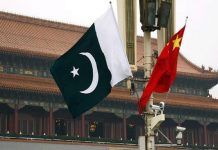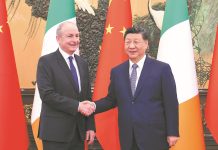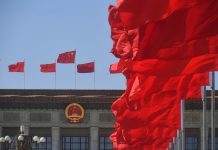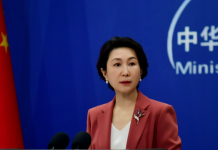By Dr. Amjad Zarin
Pakistan and China enjoy a deep-rooted and multi-dimensional partnership, one that has strengthened significantly over the years. Mutual trust, economic cooperation, and shared values form the foundation of this relationship, which encompasses cultural collaboration, people-to-people connections, and economic cooperation. People often poetically describe the bond between these two neighboring countries as “higher than the Himalayas and deeper than the oceans,” symbolizing the remarkable depth and breadth of their partnership. The enduring friendship between Pakistan and China reflects their commitment to joint development and regional stability.
Cultural Cooperation: A Pillar of China-Pakistan Relations
One of the most significant aspects of the Pakistan-China relationship is their cultural cooperation. Both nations boast rich and diverse cultural heritages, and over time, they have worked actively to deepen their understanding of one another through cultural exchanges. These efforts have manifested in the celebration of each other’s festivals and the exchange of artistic and historical treasures. For instance, Chinese Spring Festival celebrations in Pakistan and Pakistan Day events in China bring the people of both countries closer, fostering an appreciation of each other’s cultural richness. These festivities not only celebrate national pride but also build bridges of mutual respect and admiration between the two societies.
Moreover, both nations have signed numerous agreements to bolster cultural ties, including the establishment of Confucius Institutes in Pakistan. These institutes promote Chinese language learning and provide insight into Chinese traditions and values. Similarly, Pakistan has organized exhibitions in China to showcase its vibrant arts, music, and handicrafts, contributing to the deepening of cultural diplomacy. Events such as film festivals, literature exchanges, and art exhibitions further nurture the cultural connection, offering windows into the lives and stories of the people of both countries. These cultural exchanges serve as a vital bridge, strengthening the interpersonal connections that underlie the official diplomatic relations between Pakistan and China.
Fostering People-to-People Ties: Enhancing China-Pakistan Relations
Beyond cultural cooperation, people-to-people contacts have also flourished, particularly in the area of education. Over recent years, there has been a significant increase in the number of Pakistani students pursuing higher education in China. Various Chinese universities currently enroll over 30,000 Pakistani students.
These students serve as informal ambassadors of their country, gaining a deep understanding of Chinese society while fostering goodwill between the two nations. Their presence in China plays a vital role in strengthening the social and educational bonds between the two countries, and these individuals often go on to become leaders and professionals who help reinforce the bilateral relationship in various fields.
Similarly, there has been an increase in the number of Chinese citizens visiting Pakistan for both tourism and business. The Belt and Road Initiative (BRI) has facilitated this trend, making Pakistan a key destination for Chinese investment and tourism.
The Karakoram Highway, often referred to as the “friendship highway,” serves as a symbolic and physical connector between the two nations, enabling smoother travel and trade. Additionally, Pakistan has launched various student exchange programs to enhance people-to-people contact and understanding. Notably, Pakistan recently implemented a new visa-free policy for Chinese citizens on August 14, 2024, easing their entry for business, tourism, cultural exchanges, and other purposes.
Delegations from both sides, including academic scholars, business leaders, and government officials, continue to play a crucial role in furthering this people-to-people contact. These exchanges help build a greater understanding of each other’s societal structures, values, and traditions and contribute to the broader development of the bilateral relationship. Such contacts are essential in promoting long-term harmony and cooperation between the two countries.
China-Pakistan Economic Collaboration: A Strategic Partnership Under the Belt and Road Initiative
The economic collaboration between Pakistan and China is arguably the most prominent dimension of their relationship. The China-Pakistan Economic Corridor (CPEC), a flagship initiative under the Belt and Road Initiative (BRI), stands as the cornerstone of their economic partnership. Launched in 2015, CPEC aims to bolster Pakistan’s infrastructure, energy capacity, and connectivity while also providing China with enhanced access to global markets through the strategic Gwadar port. This vast project represents an investment of approximately $62 billion, underscoring the scale of China’s commitment to Pakistan’s economic development.
CPEC has already had a transformative impact on Pakistan, with significant progress made in road construction, railway development, and energy projects. This has helped Pakistan address its chronic energy shortages and played a key role in stimulating economic growth. The development of the Gwadar port, a previously small fishing village, into a key hub for international trade is a shining example of the economic potential of CPEC.
Through this initiative, China gains a direct route to the Arabian Sea, while Pakistan reaps the benefits of increased trade and investment opportunities. This mutually beneficial partnership has created new jobs and economic opportunities for Pakistan while enhancing China’s ability to connect with global markets.
In addition to CPEC, Pakistan and China share a long history of trade cooperation. China is Pakistan’s biggest trading partner, with bilateral trade volumes exceeding $28 billion in recent years. Both countries have also signed agreements to boost trade further, including the second phase of the China-Pakistan Free Trade Agreement (FTA), which came into effect in 2020. The agreement aims to reduce tariffs and provide Pakistani goods greater access to Chinese markets, helping to boost Pakistan’s exports. Efforts to expand bilateral cooperation in fields such as information technology, agriculture, industry, energy, and special economic zones are ongoing, reflecting the broad scope of their economic collaboration.
Chinese Prime Minister Li Qiang would make an official visit to Pakistan next month, in October, and would participate in the Shanghai Cooperation Organization meeting for heads of government on October 16.
During this high-level visit, the two sides look forward to boosting bilateral ties further through the multi-billion dollar corridor project and cultural exchange initiatives. This will be the first visit by any Chinese prime minister to Pakistan in 11 years.
China-Pakistan Synergy: A Strategic Alliance for Regional Stability and Prosperity
Strategic and political alignment is another critical aspect of the Pakistan-China relationship. Both countries have consistently supported each other in regional and international forums. China has been a staunch advocate of Pakistan’s position on Kashmir, while Pakistan firmly supports China’s “One China” policy, particularly concerning Taiwan, Hong Kong, and Tibet. Their close cooperation on defense projects, joint military exercises, and intelligence sharing further exemplify their shared commitment to regional stability and security.
As founding members of the Shanghai Cooperation Organization (SCO), Pakistan and China also work together to promote regional security, counter-terrorism efforts, and economic development. Their alignment on global issues, such as climate change and sustainable development, further strengthens their long-term partnership.
Looking to the future, the Pakistan-China relationship is poised to grow even stronger. New avenues for cooperation, including renewable energy, technology, and tourism, offer promising opportunities for deepening their partnership. As the global landscape continues to evolve, the strategic relationship between these two nations will remain critical in promoting regional stability and fostering economic growth.
With a bright future ahead, the enduring friendship between Pakistan and China serves as a remarkable example of a partnership based on trust, shared interests, and mutual respect.






